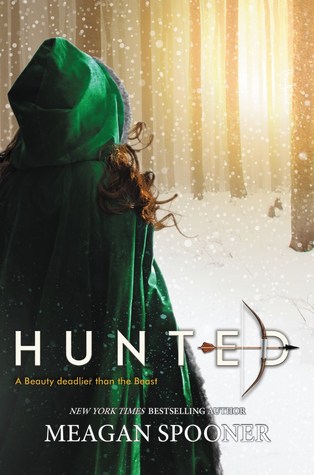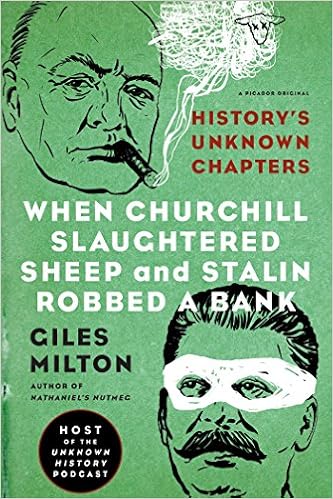 |
| HarperTeen |
Hunted
Meagan Spooner
2017
The Summary
"Beauty knows the Beast's forest in her bones--and in her blood.
"She knows that the forest holds secrets and that her father is the only hunter who's ever come close to discovering them.
"But Yeva's grown up far from her father's old lodge, raised to be part of the city's highest caste of aristocrats. Still, she's never forgotten the feel of a bow in her hands, and she's spent a lifetime longing for the freedom of the hunt.
"So when her father loses his fortune and moves Yeva and her sisters back to the outskirts of town, Yeva is secretly relieved. Out in the wilderness, there's no pressure to make idle chatter with vapid baronessas...or to submit to marrying a wealthy gentleman.
"But Yeva's father's misfortune may have cost him his mind, and when he goes missing in the woods, Yeva sets her sights on one prey: the creature he'd been obsessively tracking just before his disappearance.
"Deaf to her sister's protests, Yeva hunts this strange Beast back into his own territory--a cursed valley, a ruined castle, and a world of creatures that Yeva's heard about only in fairy tales. A world that can bring her ruin--or salvation.
"Who will survive: the Beauty, or the Beast?"
The Good
I enjoyed
Hunted. Granted, it wasn't quite what I expected, but, nevertheless, I enjoyed it. I loved the subtle interweaving of Russian folklore with the
Beauty and the Beast fairy tale, and I liked the ethereal magic of the Beast's world. I like the creatures
Hunted envisioned: Lamya the dragon, who could take on female shape; Borovoi, the leshy (or forest spirit), who liked to take on the form of a fox; the Firebird that inexorably draws Yeva; and, of course, the Beast.
It's a darkly magical world that's both breathtaking and dangerous, fascinating and deadly. I fell in love with the woods that Meagan Spooner imagined, a cursed forest full of magical creatures--dragons, forest spirits, monsters, more--that exists just beneath the surface of human perception. I loved even the simple descriptions of it:
"She instantly saw colors playing against the backs of her eyelids, pulsing in time with the not-quite-music. Blue and white and green streaks of light shot across her vision. She did not dare breathe to speak, but nodded instead, slowly, as though moving too quickly would jar the vision free. [...] All around were the trees, and the snow, and the underbrush, and the light in her mind's eye was transposed against the scene."
And when both Yeva and the the Beast speak of longing, of wanting something indescribable, it really struck a chord with me. I mean, everyone has a goal, everyone has something in mind that they want and desire, something for which they hope. Sometimes, it's just a longing that has no relief, no way to alleviate, because, until you find that indescribable thing, it's hard to even imagine what you want.
"I remember a life before that was good, but not the one I wanted. I remember feeling as though nothing and no one in this world could ever understand the way I wanted, that pang that rings deeper than flesh and bone.
"My longing for something else, beyond, into magic and dreams and the things everyone else seemed to leave behind as children. For something I knew I could never truly find."
As silly as it may sound, I found those words spoke to me. I think it's the feeling every reader gets whenever he or she picks up a book and dives into a new story. For me, I feel like I'm always looking for something in the next book that will really connect with me, that will make me feel something incredible--that will take me away, for the briefest moments, from everyday reality. Readers are always looking for something, looking to find something or learn something in a new book, and
Hunted seems to capture that longing.
Oh, and I can't forget the dedication:
"To the girl
who reads by flashlight
who sees dragons in the clouds
who feels most alive in worlds that never were
who knows magic is real
who dreams
This is for you."
Who wouldn't fall in love with that dedication?
The Bad
Although I enjoyed
Hunted overall, I found myself constantly stymied by my expectations of what
Beauty and the Beast should be. I read the cover, so I knew what I was getting into with this novel; however, I kept thinking back to Belle in Disney's rendition of the tale. I couldn't get my mind to drift away from it, which colored how I began to think of Yeva and her story.
I think if I'd gone into this story with no expectations, without knowing the novel was based on
The Beauty and the Beast, I would have enjoyed it more. I liked it, don't get me wrong, but I was always expecting something else to happen, hoping Yeva would live up to some kind of expectation that she couldn't because she's a completely different character.
Reading it for itself, reading it without Disney's
Beauty and the Beast in mind (a difficult thing to do, since a new version only recently came out), makes for a much better experience. That is, if you go into it without the expectation of finding Belle--if you go into it thinking of Yeva as her own separate character with her own separate story and thoughts and feelings--
Hunted is a genuinely good story.
The Ugly
Blood and gore.
Yeva is a hunter. Her father is a hunter. The Beast is a predator. There's bound to be blood at some point. And it only gets worse when Yeva sets her sights on revenge.








